Description
WHY BUY DEKALB WHITE RTL FROM ALPHA AGVENTURE FARMS?
Our prices may appear higher than those of other breeder farms, but this reflects the unmatched care, quality, and expertise that we invest in every Dekalb White chicken. When you choose us, you’re securing healthier, more efficient layers that will contribute significantly to the success of your farm. We aim for excellence in everything we do, and we don’t believe in cutting corners. Here’s why our Dekalb Whites are the ideal choice for your farm:
1. Pre-Delivery Health Care
Before they leave our farm, we ensure that our Dekalb Whites are in peak condition. They are dewormed twice and undergo bacterial flushing. These steps are complemented by a revaccination against Newcastle Disease. We also provide Aviotix, which includes prebiotics, probiotics, and phytobiotics for seven days, promoting optimal gut health.
2. Commercial-Grade Supply Capacity
Through our Poultry Subfarm Program, select commercial poultry farms that meet our strict quality standards have partnered with us. This strategic collaboration allows us to maintain a steady and large-scale production of Dekalb White F1 pullets, ensuring we can fulfill bulk orders with consistency and reliability. Whether you need a few hundred or several thousand pullets, our capacity guarantees that you receive uniform, high-quality birds raised under stringent biosecurity and management protocols. Unlike smaller suppliers who may struggle with volume or consistency, Alpha Agventure Farms delivers both scale and quality, making us the trusted choice for serious poultry farmers.
3. Vaccination Program
To provide long-term protection, our Dekalb Whites are vaccinated against the Newcastle Disease before leaving our farm. These vaccinations ensure that they are healthy and resilient as they adapt to their new environment.
4. Feeding Program
From day one, our Dekalb Whites are fed a carefully balanced diet that supports their growth and productivity. Our feeding program is tailored to ensure that they receive all the necessary nutrients for their optimal development and performance on your farm.
5. After-Sales Support
Our support doesn’t end with the sale. We provide ongoing assistance to help you manage and maintain the health of your Dekalb Whites. Whether you need guidance on nutrition, health management, or production, we’re here to support your success.
6. Traceability and Transparency
We keep detailed records for each bird, tracking their health and history from hatching to delivery. This ensures transparency, so you can have complete confidence in the quality and care of the Dekalb Whites you purchase.
7. Sustainability Practices
We are committed to sustainable farming practices that promote both productivity and environmental responsibility. By choosing our Dekalb Whites, you support farming methods that benefit the environment while helping your farm thrive for years to come.
8. Exclusive Insights and Resources
We offer you access to valuable resources, including our pre-recorded Chicken Farming Seminar, where you can learn expert strategies to optimize your poultry farming practices and boost your farm’s performance.
9. Personalized Customer Care
At Alpha Agventure Farms, we believe in offering personalized care to every customer. Our farming consultancy service provides tailored advice and actionable solutions, helping you solve challenges and maximize the potential of your farm.
By choosing Alpha Agventure Farms, you’re investing in Dekalb White chickens that are strong, healthy, and equipped to help your farm achieve lasting success.
BUY DEKALB WHITE RTL FOR SALE
Looking for Dekalb White F1 Layers for sale in the Philippines? These birds are renowned for laying up to 500 eggs on their first year. Their strong adaptability to the Philippine climate ensures consistent and reliable egg production.
The price of Dekalb White F1 Layers is competitive, especially when considering their high productivity and feed efficiency. These layers are cost-effective for both small and large-scale poultry operations.
Searching for Dekalb White near you? When you search “Dekalb White near me” on Google, you’ll find Alpha Agventure Farms at the top of the results. We offer delivery at the buyer’s cost, ensuring a smooth and convenient purchasing process.
Dekalb White F1 Layers are not only productive but also easy to manage, thanks to their calm temperament. Their minimal maintenance requirements make them a great choice for poultry farms of all sizes, helping to simplify daily operations.
These layers produce high-quality eggs with strong shells and rich yolks, meeting market demands for superior eggs. With proper care and management, they provide consistent yields throughout their laying cycle, boosting profitability.
Take the next step in improving your poultry business—buy Dekalb White F1 RTLs today. Their proven productivity and efficiency make them a smart investment for long-term success on your farm.
HISTORY OF THE DEKALB WHITE
The history of Dekalb White Layers dates back to the mid-20th century in the United States. The breed was developed by the DeKalb Agricultural Association, a company initially renowned for its hybrid corn. In the 1950s, they applied their hybridization expertise to poultry, aiming to create a high-performance layer breed that excelled in egg production and feed efficiency to meet the growing demand for eggs.
Development of Dekalb White RTLs
In the 1960s and 1970s, the breeding program for Dekalb White RTLs focused on enhancing traits such as high egg yield, strong eggshell quality, and disease resistance. The goal was to create a bird that thrived in various climates and housing systems, ensuring reliable productivity across different environments. This focus on selective breeding resulted in a robust and resilient layer that quickly gained popularity among commercial egg producers worldwide, revolutionizing the egg industry with its efficient performance.
Global Expansion and Popularity
By the 1980s, Dekalb White Layers had become a dominant force in the global egg industry. Their adaptability to diverse environmental conditions and high productivity made them a preferred choice for egg producers in numerous countries. As the poultry industry continued to evolve, Dekalb White RTLs remained at the forefront of innovation and efficiency, adapting to modern farming practices and consumer preferences for humane and sustainable production methods.
Legacy and Impact
The legacy of Dekalb White Layers is marked by their significant contribution to the global egg industry and their role in setting new standards for layer breeds. Acquired by Hendrix Genetics, a leading animal breeding company, the brand continues to benefit from advanced genetic improvements. Dekalb White RTLs remain a cornerstone of commercial egg production, shaping the industry’s future with their unparalleled performance and adaptability to changing market demands.
FREQUENTLY ASKED QUESTIONS
What does it mean when your Dekalb White packages are listed as on backorder?
When our Dekalb White packages are marked as “on backorder,” it means they are currently out of stock, but you can still place an order. Once the packages become available again, Alpha Agventure Farms will prioritize fulfilling your order. This typically happens when demand exceeds our current inventory or while we’re waiting for a new shipment.
By placing a backorder, you reserve your Dekalb White packages, ensuring you receive them as soon as they’re restocked. While we don’t have an exact restocking date yet, we’ll keep you updated on the availability timeline.
Can I use your Dekalb White F1 Layers as breeders?
No, you can’t. Our Dekalb White layers are F1s and not parent stocks. We do not sell parent stocks yet.
Do you deliver anywhere in the Philippines?
All items are for pick-up only at our designated zone in Block 7, Barangay San Manuel, Tarlac City. If unable to pick up Dekalb White Layers, consider hiring an animal transporter. We can assist in finding one if needed. Provide your address and order details for a delivery quote and schedule. Once with the transporter, Dekalb White RTLs are no longer our responsibility.
Can I pick up my Dekalb White RTLs tomorrow if I pay today?
The minimum waiting period is 14 days because we need to deworm, administer bacterial flushing, and revaccinate your Dekalb Whites. It could be longer than 14 days if there are other orders ahead of yours.
Will you teach me how to raise Dekalb White F1 Layers if I buy from you?
Register to our Chicken Farming Seminar to learn our entire farm practices when raising chickens. The video features the Rhode Island Red chicken breed but the cultural management part applies to Dekalb White F1 Layers and all heritage chickens as well.
What are Dekalb White F1 Layers, and why are they popular?
Dekalb White F1 Layers are a hybrid breed known for their high egg production, efficiency, and adaptability. They are popular among commercial egg producers due to their ability to produce a large number of white eggs with minimal feed consumption. These birds have been selectively bred for their performance traits, resulting in a robust and reliable layer that thrives in various environments. Their calm temperament and disease resistance also make them a favorite among poultry farmers seeking consistent productivity.
How many eggs can I expect from Dekalb White RTLs per year?
Dekalb White RTLs are renowned for their exceptional egg production capabilities, typically laying up to 500 eggs up to 100 weeks of age, almost the equal to our Dekalb Brown RTLs. This impressive yield makes them one of the most efficient layers available, particularly appealing to commercial egg producers. Their high laying rate results from advanced breeding techniques that emphasize productivity and feed efficiency. With proper care, nutrition, and management, these layers can maintain peak production throughout their laying cycle, maximizing your return on investment.
What type of housing do Dekalb White F1 Layers require?
Dekalb White F1 Layers require housing that provides protection, ventilation, and comfort. For a cage-free setup, a well-ventilated coop with adequate space for each bird (3 birds per square meter) is essential. The coop should be equipped with nesting boxes, roosting perches, and easy access to food and water. Proper bedding, such as straw or wood shavings, should be provided to keep the environment clean and dry. Additionally, a secure enclosure or free-range area allows them to exercise and exhibit natural behaviors, contributing to their overall health and productivity. For a caged setup, you can fit 4 birds in a 2.25 square feet cage. You can buy an RTL chicken layer cage from us.
What should I feed Dekalb White RTLs for optimal egg production?
To achieve optimal egg production, Dekalb White RTLs should be fed a balanced diet rich in proteins, vitamins, and minerals. A commercial layer feed typically meets these requirements, providing essential nutrients like calcium for strong eggshells and protein for egg formation. Fresh, clean water should always be available. Supplementing their diet with greens, grains, and kitchen scraps can provide additional nutrients and variety. It’s important to avoid feeding them excessive treats or foods that can disrupt their nutritional balance, ensuring consistent and high-quality egg production.
How do Dekalb White F1 Layers perform in different climates?
Dekalb White F1 Layers are highly adaptable and perform well in various climates, thanks to their robust genetics and selective breeding. In colder climates, they require a well-insulated and draft-free coop to maintain body temperature and ensure egg production is not adversely affected. In warmer climates, ample ventilation and access to shaded areas are crucial to prevent heat stress. Their resilience and adaptability make them suitable for diverse environmental conditions, though care should be taken to provide optimal living conditions specific to the regional climate for the best performance.
What health considerations should I be aware of for Dekalb White RTLs?
Maintaining the health of Dekalb White RTLs involves regular monitoring and preventive measures. They should be vaccinated against common poultry diseases and have access to clean water and nutritious feed to bolster their immune systems. Regular health checks for signs of illness, such as changes in behavior, appetite, or egg production, are important. Parasite control, including deworming and mite prevention, should be part of your management plan. Additionally, providing a clean and stress-free environment helps reduce the risk of health issues, ensuring your layers remain productive and healthy.
How long do Dekalb White F1 Layers typically remain productive?
Dekalb White F1 Layers typically remain productive for about 18 to 24 months, although this can vary depending on management practices and overall health. During this period, they will lay the majority of their eggs, with peak production usually occurring in the first year. As they age, the rate of egg production may gradually decline, but they may continue to lay eggs for several more years at a reduced rate. Proper care, nutrition, and stress management can help extend their productive lifespan and maintain consistent egg quality.
What is the egg size and quality from Dekalb White RTLs?
Dekalb White RTLs produce large, high-quality eggs with strong shells and bright yolks. The eggs are typically uniform in size and color, making them desirable for both commercial and household use. The high calcium levels in their diet contribute to the strength and integrity of the eggshells, reducing breakage and waste. Their eggs are known for their excellent taste and nutritional value, meeting the demands of both consumers and producers seeking premium quality eggs.
How can I manage the molting process in Dekalb White F1 Layers?
Molting is a natural process during which Dekalb White F1 Layers shed and regrow feathers, often accompanied by a temporary reduction in egg production. To manage molting effectively, provide a balanced diet rich in protein to support feather regrowth. Ensure they have access to fresh water and maintain a stress-free environment. Minimizing disturbances and ensuring comfortable living conditions can help reduce the duration of the molt. After molting, layers typically resume normal egg production, often with improved egg quality.
What are the space requirements for keeping Dekalb White RTLs?
Dekalb White RTLs require adequate space to ensure their well-being and productivity. Ideally, each bird should have at least 1-1.5 square meters of floor space within the coop. Additionally, outdoor space for roaming and foraging, such as a secure run or free-range area, should be provided to allow them to exhibit natural behaviors. Proper space allocation reduces stress, minimizes the risk of injury and disease, and promotes healthy social interactions among the birds, ultimately enhancing their productivity and overall health.
How do I integrate Dekalb White F1 Layers into an existing flock?
Integrating Dekalb White F1 Layers into an existing flock should be done gradually to minimize stress and aggression. Start by keeping new and existing birds separated by a barrier, allowing them to see and acclimate to each other for a few days. After this acclimation period, introduce them in a neutral area with ample space to avoid territorial disputes. Provide multiple feeding and watering stations to reduce competition. Close monitoring during the integration process helps ensure the birds adapt smoothly, reducing potential conflicts.
What are the typical behavioral traits of Dekalb White RTLs?
Dekalb White RTLs are known for their calm and docile temperament, making them easy to handle and manage. They exhibit social behaviors and thrive in flocks, often forming a well-defined pecking order. Their friendly disposition makes them suitable for both commercial operations and backyard settings. Despite their docility, they are also active foragers and enjoy exploring their surroundings. Providing opportunities for natural behaviors, such as dust bathing and scratching, contributes to their overall well-being and productivity.
What are the lighting requirements for Dekalb White F1 Layers?
Proper lighting is essential for optimizing egg production in Dekalb White F1 Layers. They require 16 hours of light per day to maintain peak laying performance. In areas with shorter daylight hours, supplemental lighting can be used to extend the photoperiod, encouraging consistent egg production. A gradual increase in lighting duration is recommended to prevent stress. Ensuring a balanced light-to-dark ratio helps regulate their biological rhythms, supporting optimal reproductive health and productivity.
How do Dekalb White RTLs perform in cage-free or free-range systems?
Dekalb White RTLs perform well in cage-free and free-range systems, thanks to their adaptability and active foraging behavior. In these systems, they have more space to roam and engage in natural behaviors like scratching, dust bathing, and exploring their environment. Proper management, including predator protection and adequate nutrition, is essential to ensure their safety and well-being. Their resilience and efficient feed conversion make them a suitable choice for producers seeking to implement more humane and sustainable farming practices while maintaining high productivity.
What are the benefits of choosing Dekalb White F1 Layers for egg production?
Dekalb White F1 Layers offer several benefits, including exceptional egg production, feed efficiency, and adaptability to various environments. Their high egg yield and strong shell quality meet consumer demands for large, uniform eggs. Additionally, their calm temperament and disease resistance reduce management challenges and enhance their suitability for both commercial and backyard settings. These layers provide a cost-effective solution for egg producers, maximizing profitability through consistent production and reduced feed costs, making them a popular choice for poultry farmers worldwide.
How can I ensure biosecurity when raising Dekalb White RTLs?
Implementing biosecurity measures is crucial to protect Dekalb White RTLs from diseases and pathogens. Start by maintaining a clean environment with regular sanitation of coops, equipment, and feeding areas. Limit access to the flock, and require visitors to follow hygiene protocols, such as using footbaths and protective clothing. Isolate new birds before introducing them to the flock to prevent disease transmission. Monitoring bird health regularly and working with a veterinarian to establish vaccination and parasite control programs further ensures the health and safety of your flock.
How do Dekalb White F1 Layers handle stress, and how can I minimize it?
Dekalb White F1 Layers are generally resilient but can experience stress from environmental changes, overcrowding, or inadequate nutrition. To minimize stress, provide a consistent and comfortable living environment with appropriate space, ventilation, and lighting. Ensure a balanced diet and access to clean water. Reducing sudden changes in their environment, such as loud noises or handling, also helps. Observing their behavior for signs of stress, such as feather pecking or reduced egg production, allows for timely intervention and stress mitigation.
What are the water requirements for Dekalb White RTLs?
Dekalb White RTLs require a constant supply of fresh, clean water to support their high metabolic and egg production rates. On average, a laying hen consumes about 250-300 milliliters of water per day, though this can increase in hot weather or during periods of high egg production. Providing clean water through an automatic drinker system can ensure a consistent supply and reduce the risk of contamination. Regularly check water lines and clean drinkers to maintain water quality and prevent dehydration, which can negatively affect egg production.
How do I handle egg collection and storage for Dekalb White F1 Layers?
Regular egg collection is essential to maintain egg quality and prevent egg-eating behaviors. Collect eggs at least twice daily, ideally in the morning and afternoon, to reduce breakage and contamination. Handle eggs gently to avoid cracks and store them in a cool, clean, and dry place. Eggs should be stored with the pointed end down to maintain freshness and minimize air cell movement. Proper storage conditions, such as temperatures between 10-15°C and moderate humidity, help preserve egg quality and extend shelf life.
What are the economic benefits of raising Dekalb White RTLs?
Raising Dekalb White RTLs offers several economic benefits, making them a popular choice for egg producers. Their high egg production rate, feed efficiency, and adaptability contribute to a cost-effective operation. With proper management, they produce large quantities of high-quality eggs, maximizing profitability. Their disease resistance and calm temperament reduce labor and healthcare costs, while their adaptability to various housing systems allows for flexibility in farm management. These factors combine to create a reliable and profitable venture for poultry farmers, enhancing the overall economic viability of egg production operations.


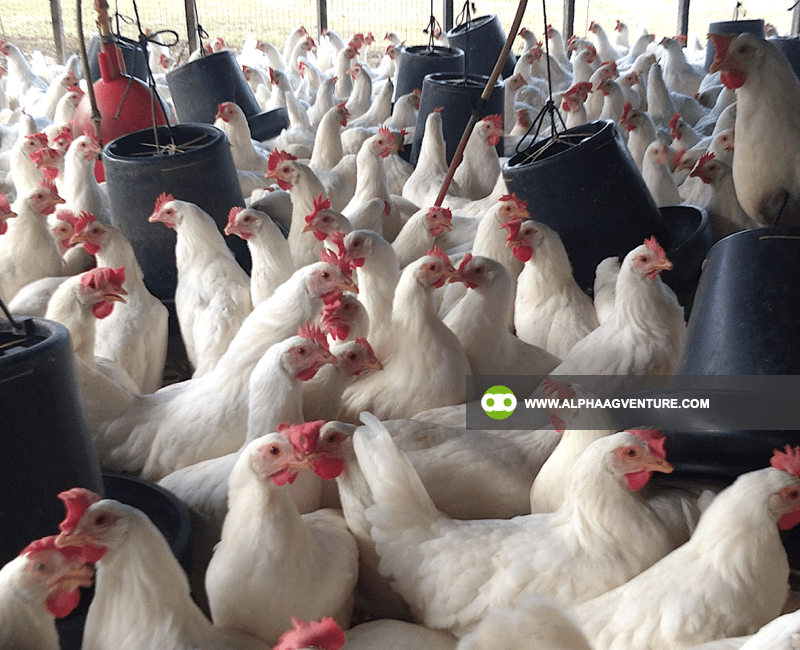
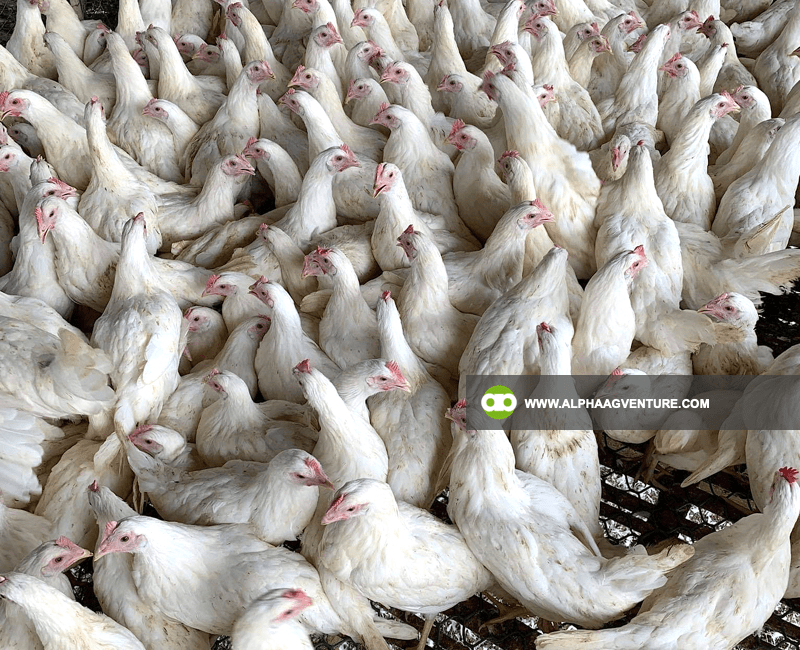
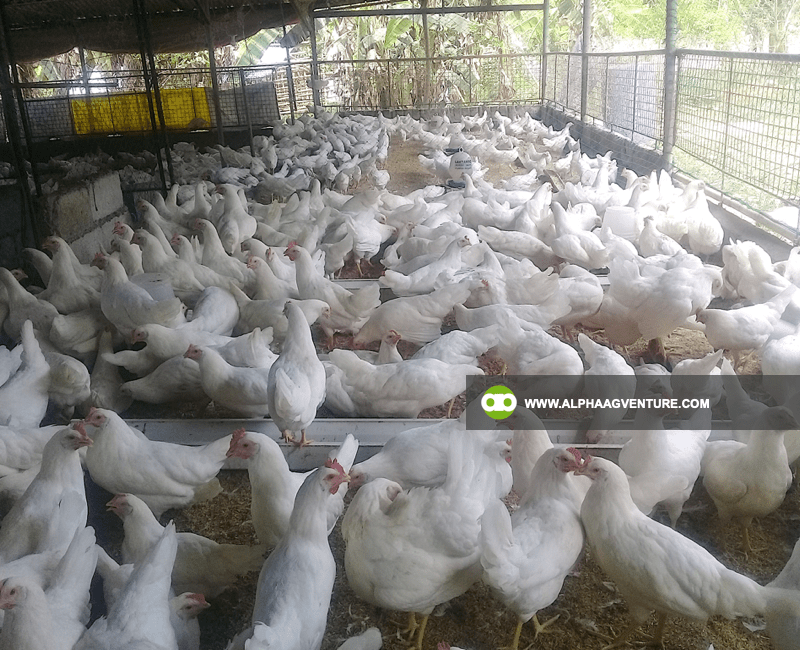
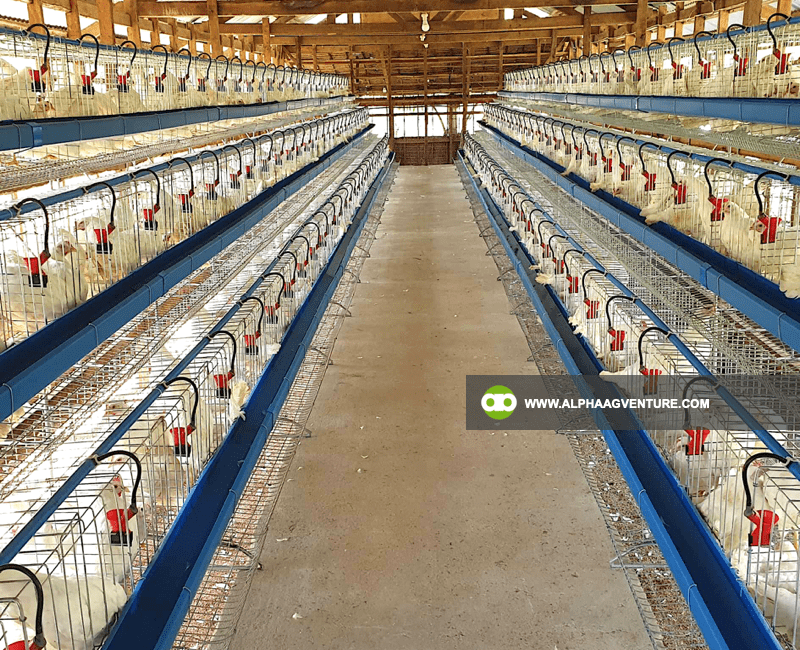
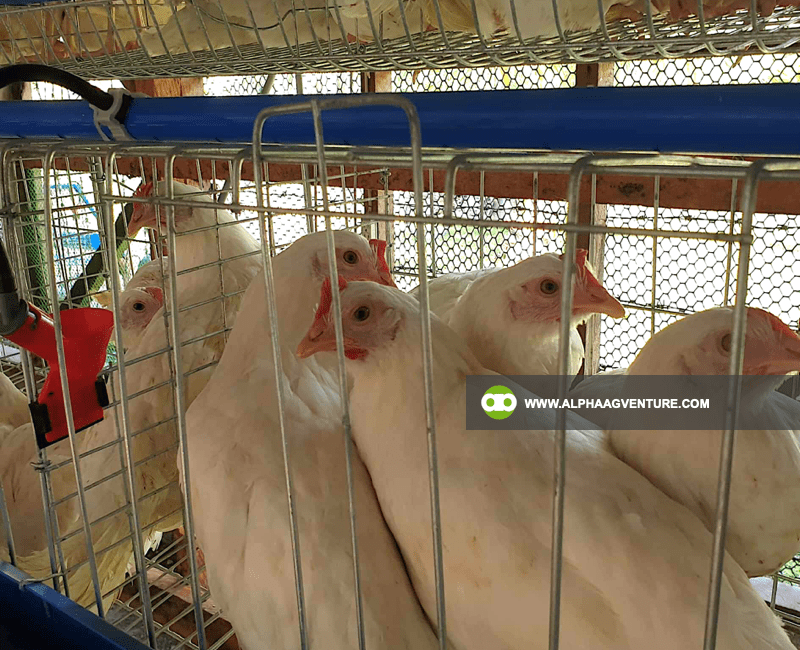
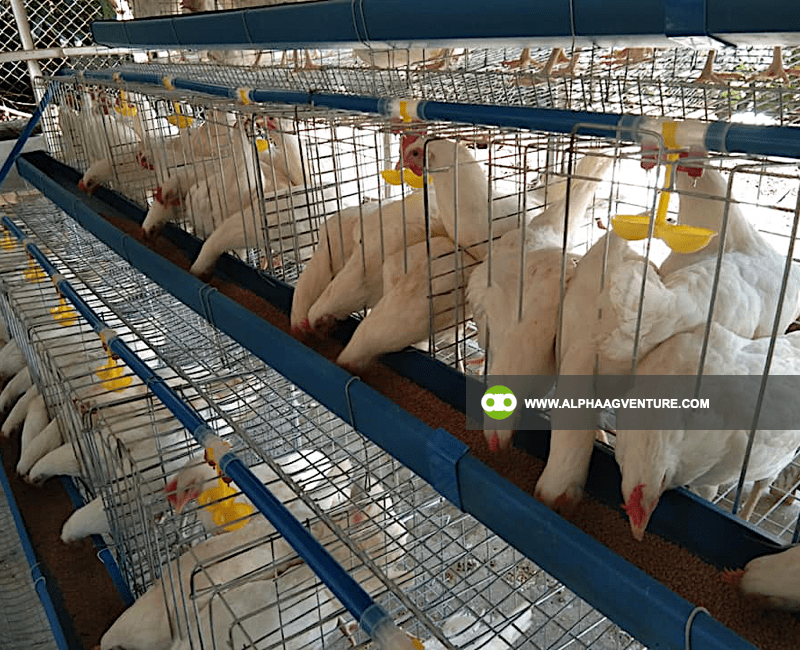
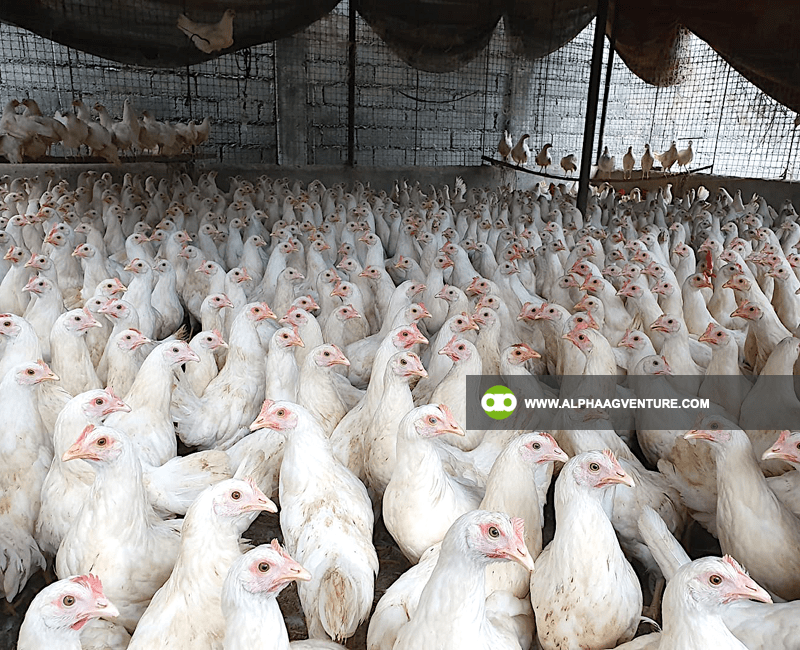
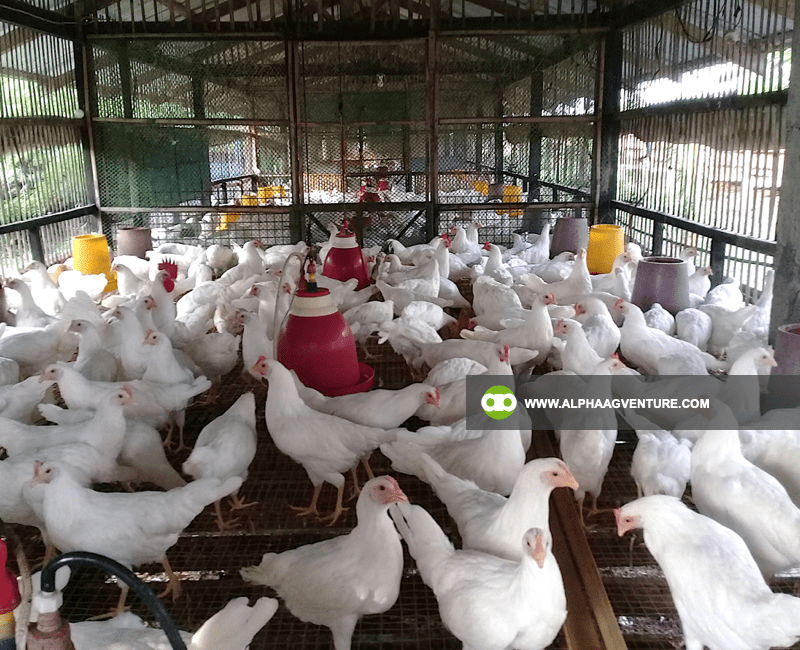
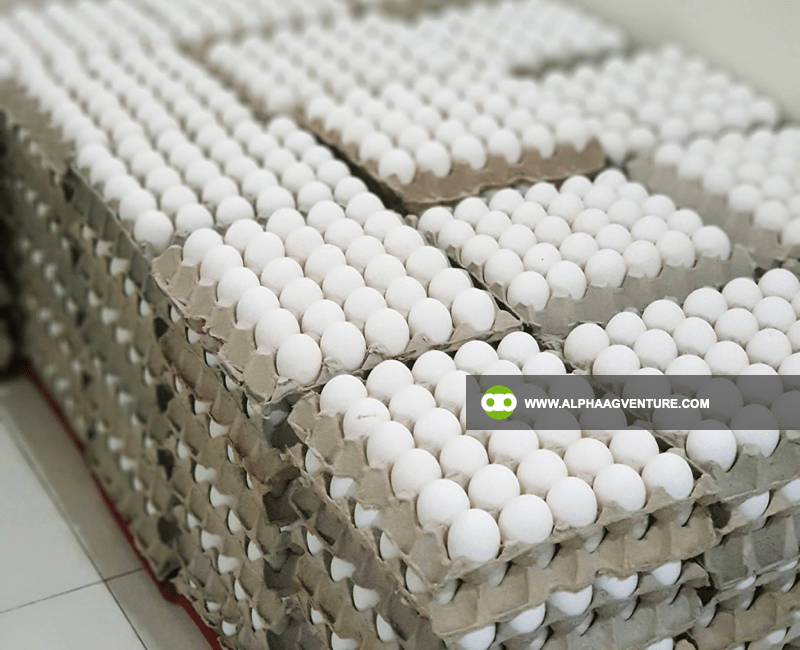
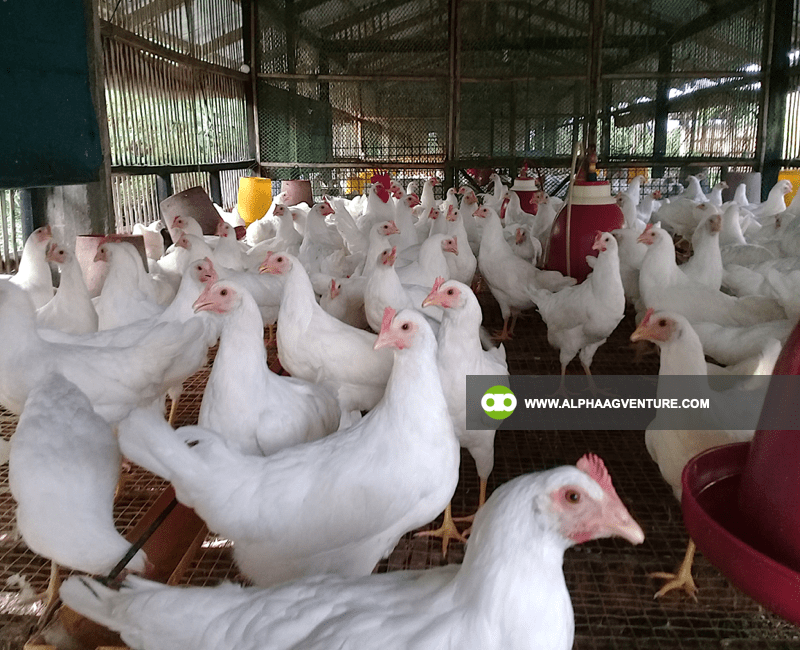
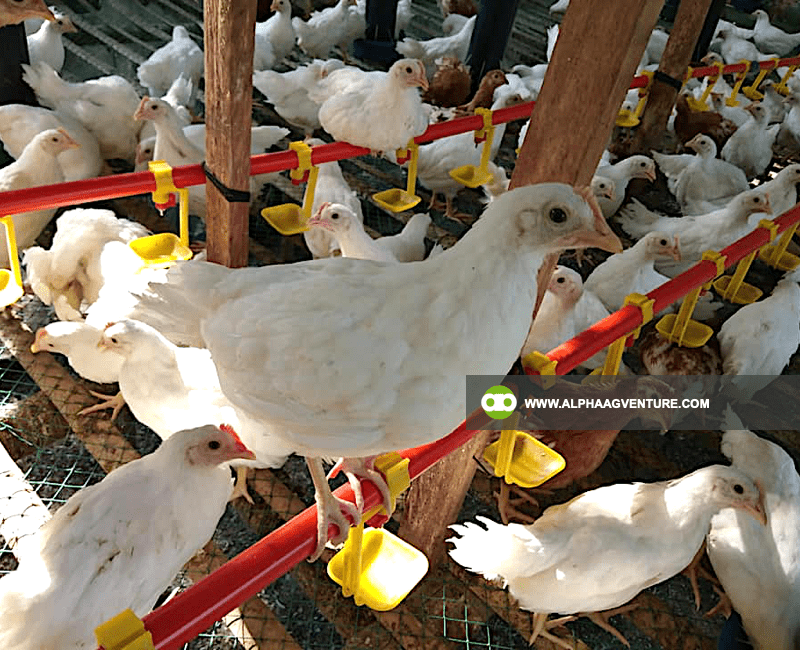
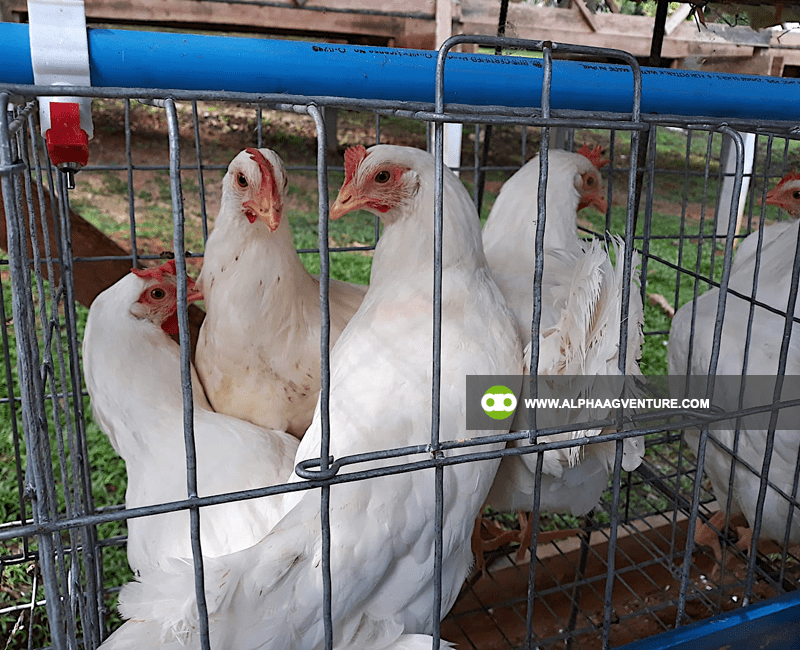
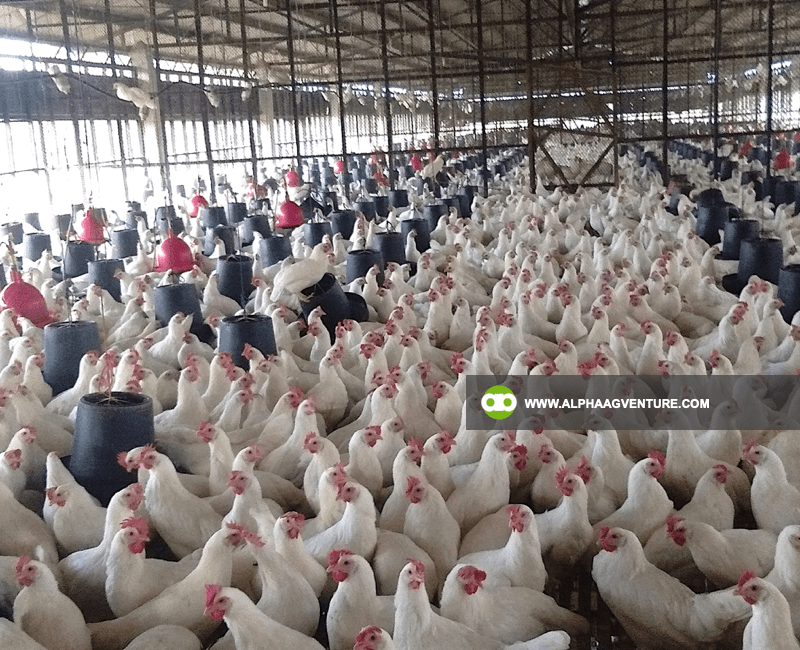
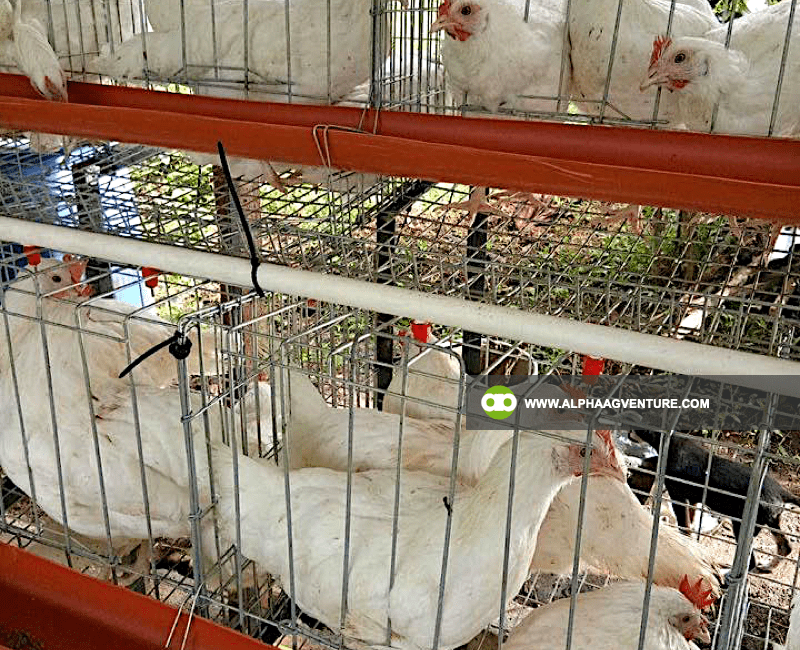
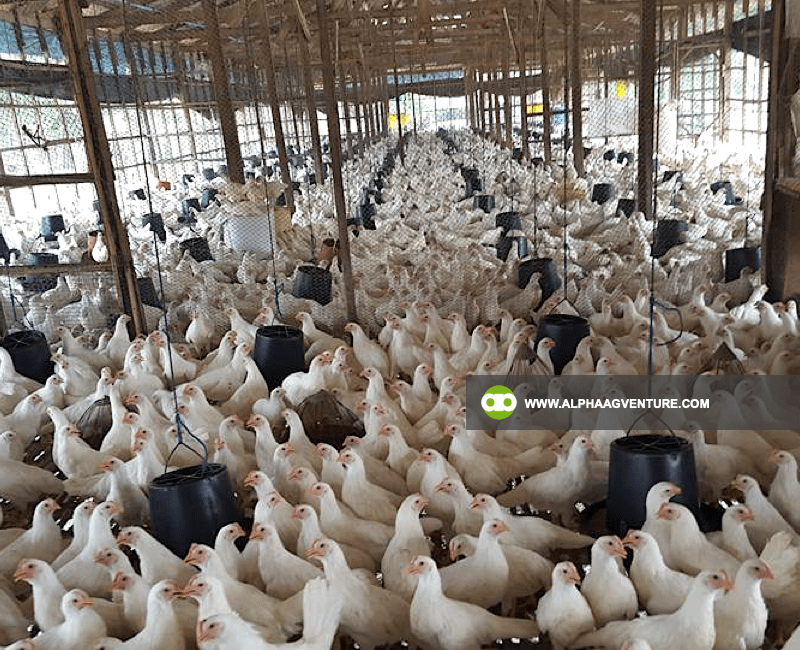
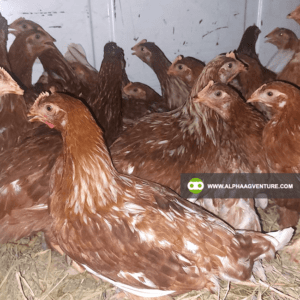
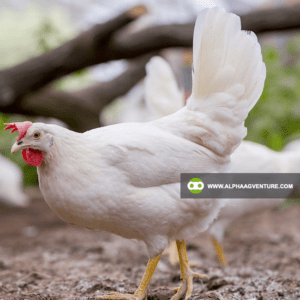
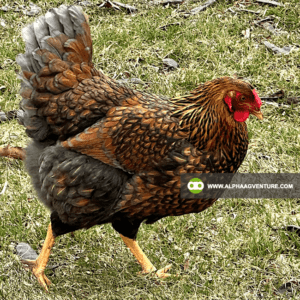
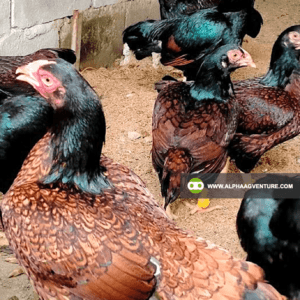
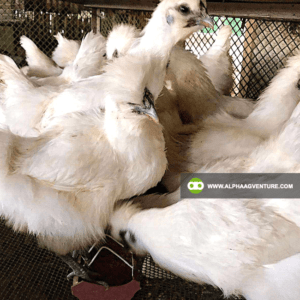
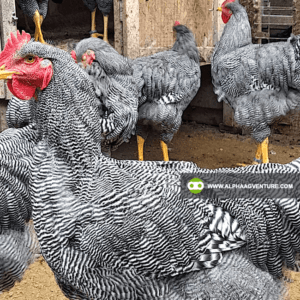
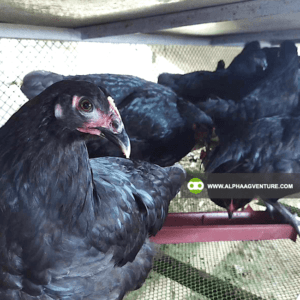
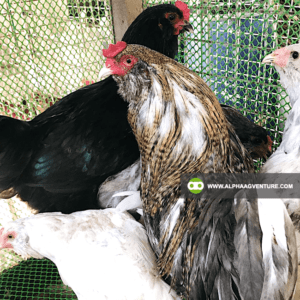
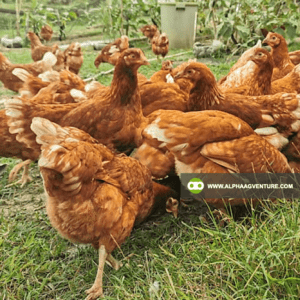
Reviews
There are no reviews yet.